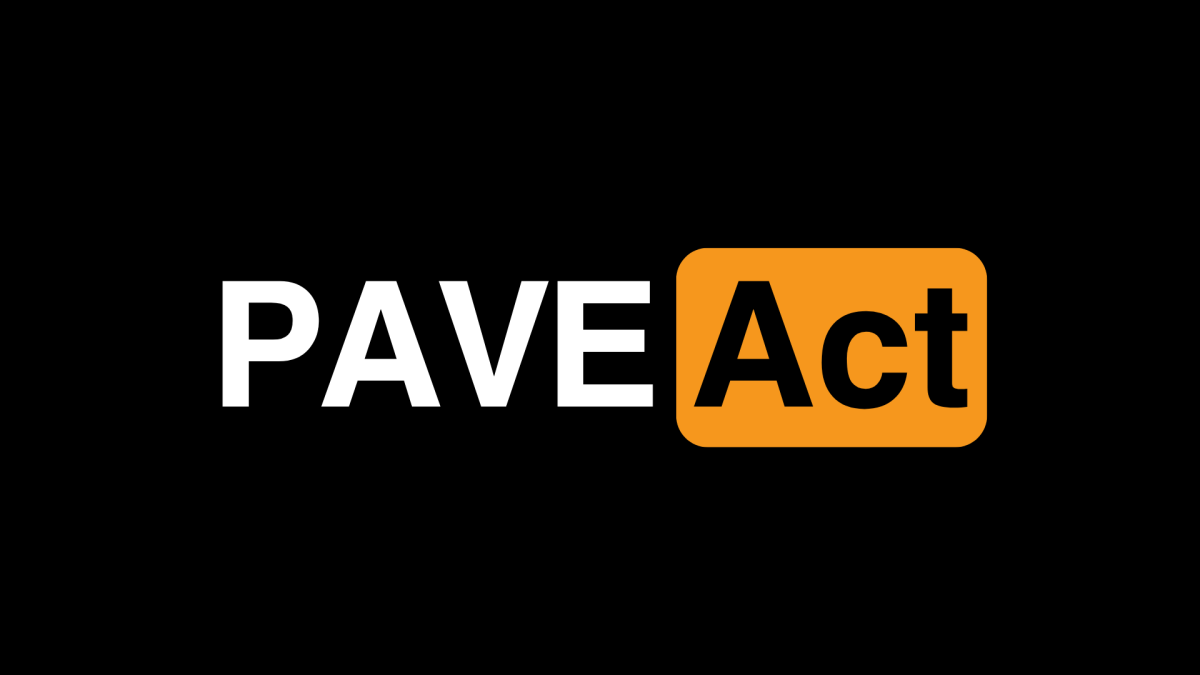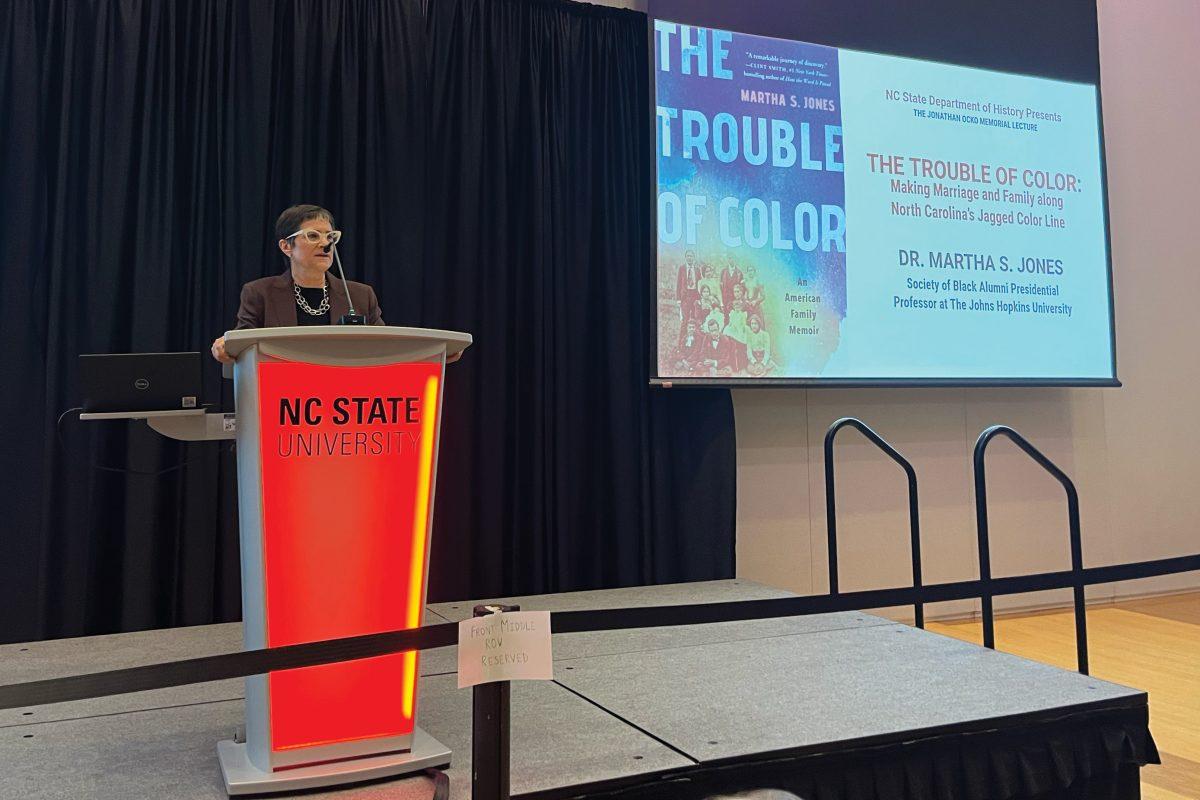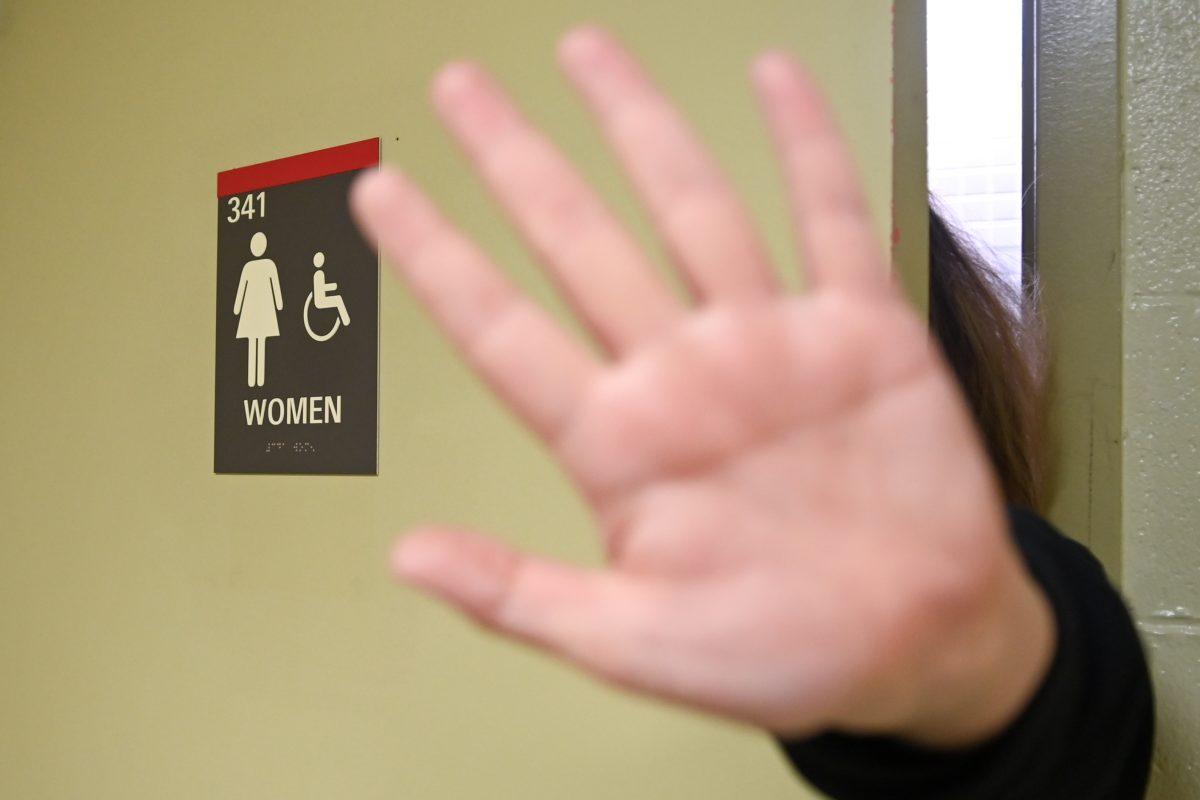North Carolinians are now required to verify their age in order to access pornographic websites because of the The Pornography Age Verification Enforcement Act, also known as the PAVE Act. The bill took effect Jan. 1 after being signed into law by Gov. Roy Cooper in September 2023.
The PAVE Act was passed in a bipartisan move to discourage underage pornography consumption and has sparked controversy regarding privacy rights and sexual liberty.
Deputy Majority Whip Rep. Jon Hardister was a primary sponsor of the PAVE Act and said the primary goal is to prevent X-rated content consumption by minors.
“We’re in a place where most North Carolinians agree that we don’t want kids on the website,” Hardister said. “The intent was not to shut them down, but to protect kids.”
However, the bill has led to shifts in the consumption of adult entertainment in North Carolina — the most notable being the major X-rated content site Pornhub preventing North Carolinians from accessing its site.
Kama Kosenko, an associate professor of communication with a specialty in sexual communication, said she believes the PAVE Act’s implementation will reduce the sense of understanding of the human body amongst minors and teenagers.
“Now trying to regulate another source of information about sex in the form of porn is just going to leave young people more and more in the dark about their bodies,” Kosenko said.
T’Daigeon Major, a third-year studying history, said he doesn’t believe the law will change much due to the amount of sexual content on the internet.
“I don’t think it’s really going to affect much of anything,” Major said. “There’s pornography on social media, you know?”
Kosenko said where there’s a will, there is a way for people to access adult content.
“I think that young people are probably a lot smarter and more savvy about their internet use than the lawmakers and the people are trying to put these laws into effect,” Kosenko said. “So I think it will have little impact, and I think minors will find what they’re looking for online one way or another.”
A major question regarding the bill has been the addition of identification walls to adult entertainment sites and how to ensure adults still have access to them. Hardister said he sees accounts for adults as the workaround for verifying a user’s age every time he or she accesses a site.
“There could be a way to create a membership in a way that’s free,” Hardister said. “The bill is not intended to keep adults off.”
Kosenko said the law limits the liberties of adult entertainment consumers with such verification measures more so than it restricts pornographic websites.
“These conglomerates are the ones who are making a lot of money, and they’re the ones who have to figure out how to implement this law,” Kosenko said. “But I would certainly say the average user of online porn is having their liberties infringed upon by this age verification act.”
Another point of concern has been the protection of people’s personal information as they attempt to access these sites, especially if they have to share it to receive a membership.
However, Hardister said he does not believe privacy is a significant concern.
“You’re always going to have concerns about data collection — they can do that currently,” Hardister said. “That’s why we wrote into the bill that the companies keep that data private.”
Kosenko said this kind of database of personal information would not be immune from abuse and hinders citizens’ abilities to control their information.
“I think there’s the potential for this kind of information to be misused,” Kosenko said. “The notion of other people having some sort of knowledge of what porn you’re consuming is disturbing and certainly a violation of privacy.”
When it comes to addressing these concerns, Hardister added there are other ways North Carolina has considered how to both safeguard user privacy and promote the bill’s goal. He referred to IP addresses, a number that a computer uses to access the internet, as a possible way to circumvent an identification wall.
“They are advocating that you use the IP address to verify the user,” Hardister said. “We have to have conversations on how to put that into law.”












